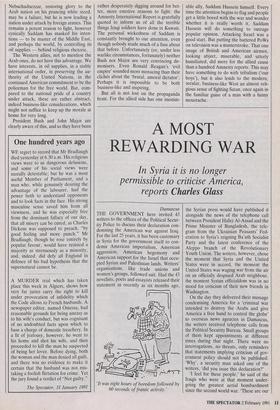One hundred years ago
WE regret to record that Mr Bradlaugh died yesterday at 6.30 a.m. His religious views were to us dangerous delusions, and some of his social views were morally detestable; but he was a most useful Member of Parliament, and a man who, while genuinely desiring the advantage of the labourer, had the power both to understand opponents and to look facts in the face. His strong masculine sense saved him from all viewiness, and he was especially free from the dominant fallacy of our day, that all misery can be cured, as Charles Dickens was supposed to preach, "by good feeling and more punch." Mr Bradlaugh, though he rose entirely by popular favour, would have resisted a majority as strenuously as a minority, and, indeed, did defy all England in defence of his bad hypothesis that the supernatural cannot be.
A MURDER trial which has taken place this week in Algiers, shows how very far juries carry the right to kill under provocation of infidelity which the Code allows to French husbands. A newspaper editor, named Omessa, had reasonable grounds for being uneasy as to his wife's conduct, but was cognisant of no undoubted facts upon which to base a charge of domestic treachery. In a fit of jealousy, however, he went to his home and shot his wife, and then proceeded to kill the man he suspected of being her lover. Before dying, both the woman and the man denied all guilt, and there was no evidence to make it certain that the husband was not mis- taking a foolish flirtation for crime. Yet the jury found a verdict of "Not guilty."
The Spectator, 31 January 1891


















































 Previous page
Previous page